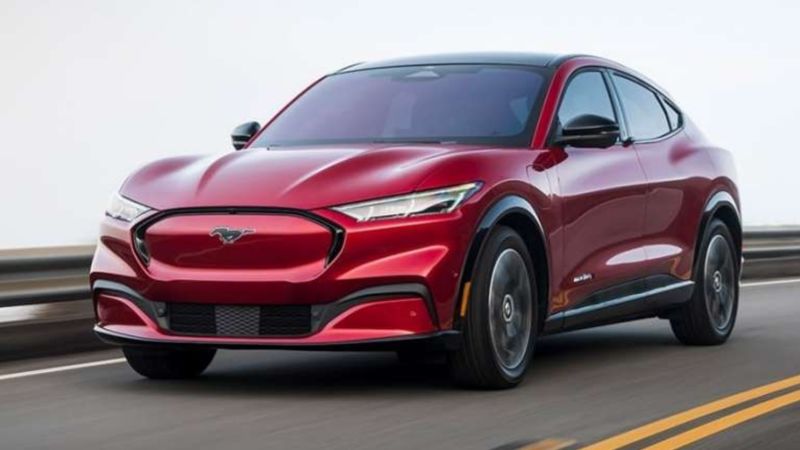Lydia Wu had never driven an electric vehicle before she rented a car from Avis last February. All that was available at the location in Kansas City, Kansas, was an electric Genesis GV60. Wu received no specific instructions for how to use the vehicle or how to find chargers, but she appreciated the SUV’s ornate and elegant interior.
“If it was a gas vehicle, I would totally consider it as my next car,” she said.
But she is now out of the market for an EV.
I, on the other hand, have had a lot of experience with EVs and when I recently rented a Polestar 2 from a Hertz in San Diego there were no instructions either. No problem. But I could imagine a first-time EV driver wondering, “How do I turn this thing on?” Many would be flummoxed by a car with no “Start” button, for instance. In a Polestar, you get in and it’s on. You get out and it turns off. A lot of drivers may be baffled by that alone.
“I loved the car, but my God, it was such a p*ss poor experience, it turned me off EVs entirely,” Wu said. Ironically, Wu at the time worked in human resources technology for an electric vehicle battery manufacturer but hadn’t driven an EV.
While sales growth has slowed, EVs make up about 7% of overall car sales, according to Cox Automotive. Rental car companies may have overestimated their customers’ readiness for a switch, though. Hertz made a bold move in 2021, saying it would order 65,000 EVs from Polestar, 100,000 from Tesla and another 175,000 from General Motors. At the time, Hertz said that EVs might represent 25% of its fleet by 2024.
But in January Hertz said it would sell 20,000 Tesla models, or one-third of its fleet, to buy gas-powered cars. The company’s CEO at the time, Stephen Scherr, said, “Collision and damage repairs on an EV can often run about twice that associated with a comparable combustion engine vehicle.”
In general, big rental car companies, with huge fleets to manage and lots of customers to put into cars, don’t have time to give individual instruction to rookie EV drivers.
And it’s not a seamless transition from a gas-powered vehicle to an EV. Experienced as I am, I was still taken by surprise as I approached a stop light in the Polestar and the car slowed abruptly as soon as I lifted off the accelerator. Oh, right…it’s called “automatic regenerative braking.” The Polestar was using its electric motor to slow the car while sending power back to the battery. That’s a good thing, but, again, I could just imagine a new renter panicking and thinking, “Is something wrong?”
Hertz said in an email that it provides a QR code that links to a website with information about how to charge and even how to drive individual models like the Polestar 2. If that link was provided during my rental, then I must have missed it. I went to the website and watched the videos and, yes, the instructions would have been helpful. But, let’s face it, how many people who rent cars take the time to read the paperwork, let alone go to a website to review instructions?
Beyond that, both Hertz and Avis declined to comment for this story.
Doug Jensen, similarly to Wu, found due to scarcity that he had to rent an EV from a Hertz location in New York City. Given no instruction on how to handle charging, he found himself trying to use Tesla chargers for his Kia rental car, not initially realizing they wouldn’t work. Then he had to struggle with a non-working EV charger at his hotel.
Since then, Hertz has respected Jensen’s request to never have an EV again, he said. Hertz also gave him a free rental day and extra loyalty points to make up for his aggravation.
It was around around 1 a.m. in February in Kansas City, Kansas, when Wu got her rental GV60 with its batteries charged up to 57%. She had to quickly find a charger since it was cold and, with the heat running, the battery was draining faster than normal.
“It was easy to find chargers but the thing is (the navigation software was) pulling up every single charger available including Tesla Superchargers,” she said. “I didn’t have EV experience so I had no idea if Tesla Superchargers were going to work with my car.”
Wu was ultimately able to find a charger. She said her experience with the EV was good after it had been plugged in.
“I could monitor how my car was doing, charge-wise, from my phone, even though it was in the parking lot a few blocks away. So everything was super great,” she said.
There are car rental companies that offer customers more hand-holding. In my case, I’ve rented EVs from Turo, a peer-to-peer car rental platform that’s sort of like Airbnb but for cars. Just like with Airbnb, some people have set up small businesses renting their vehicles through Turo and some of them specialize in EVs.
When I’ve rented EVs through Turo, a host has always given me a helpful walk-through of the vehicle. The hosts would explain the features, something that was especially helpful when I rented a Tesla Cybertruck, an EV that has plenty of quirks. The Cybertruck had cost more than a $1,000 a day to rent at the time including insurance — it had just come out — but EV rental costs are normally more in line with gas cars.
Joulez, an EV rental company, rents its fleet through its own website as well as through Turo. Founder Micah Bergdale said he had rented EVs years ago and saw an opportunity to do it better so he started the company in 2021.
“The entire experience that someone has, especially if they’re not familiar with it, is very different than a traditional gas car,” he said.
On the Joulez website, customers are asked if they have ever driven an EV and if they have any experience with the specific model they’re about to rent. If not, an on-site attendant can provide an overview. Also, Joulez has a customer service line if they have issues with things like charging.
Of course, a company like Joulez can provide that kind of attention because it only has locations in four US cities and its fleet consists of about 150 vehicles. Bigger rental companies, on the other hand, manage hundreds of thousands of cars in locations nationwide.
And, of course, Joulez and Turo have the advantage of a customer base that knows up front what they’re renting. Their customers select specific vehicles, unlike customers who rent from big rental companies where they might select a general class of vehicle but not find out the make and model until they arrive at the lot.
But not everyone has such a bad time when renting an EV from a big rental car company. Jay Waldron, a Georgia resident, rented a Hyundai Kona EV from National while on a trip to Washington, DC. He loved how fun it was to drive.
“It was so disappointing going back to my old stick-shift 4 cylinder,” he said in a text message. “Sitting in traffic with it, I missed that EV bad.”
A few weeks later, Waldron bought himself a Kia EV6.
Read the full article here













